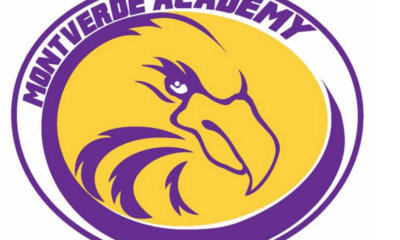PHILADELPHIA — For years, college basketball coaches have complained by the growing influence of summer travel team coaches in recruiting.
But most have become pragmatic enough to realize they cannot sign most of the great players without building a relationship with power brokers like Herman “Curtis” Malone.
The 45-year old Malone is the co-founder of the powerful D.C. Assault organization and one of the biggest names in the youth basketball. His organization been an assembly line, producing a number of future NBA players, including Jeff Green, Michael Beasley, Keith Bogans, Nolan Smith, Dante Cunningham, Kris Joseph and DerMarr Johnson and D.C. Assault alums have played for such prestigious colleges as Duke, Kentucky, Villanova and Georgetown and he has enormous clout in his players’ selection of schools.
But Malone also has a dark side as we learned last week when he was arrested and charged with drug trafficking as part of a year-long investigation by the Drug Enforcement Administration, according to U.S. District Court documents.
Law enforcement officials who searched Malone’s home in Upper Marlboro last Friday recovered approximately one kilogram of cocaine and 100 grams of heroin, one .40-caliber semi-automatic handgun as well as assorted paraphernalia associated with the distribution of controlled substances.
Malone’s arrest, which was first reported by the Washington City Paper, should only add ammunition to the ongoing movement by USA Basketball to clean up the sport by shepherding the country’s elite high school players into their national development age group programs and a push by the some members of NCAA enforcement to make certification and background checks mandatory for any summer coaches or, in a worst case scenario, do away with the live summer observation period all together.
According to prosecutors, DEA agents made several heroin purchases from Micah Bidgell, a drug dealer allegedly affiliated with Malone, through a criminal informant over the past 12 months. As a result of that investigation, investigators obtained permission to put a wiretap on Malone’s phone.
Last Friday, the City Paper reported that investigators intercepted a telephone call between Malone and a narcotics customer identified as Stephen Williams, who arranged to meet Malone at his Upper Marlboro home. Police observed Williams leave Malone’s house with a black bag in his hand. Following a traffic stop, law enforcement recovered approximately one kilogram of cocaine from the black bag, according to the documents. A search warrant was executed on Malone’s home. Just before 9 p.m. that night, Malone was arrested and transported to Northeast Washington for processing by police.
In a statement, D.C. Assault said none of its other coaches, players or administrators were involved in the allegations against Malone and that it will cooperate with authorities. The organization went on to claim it was “stunned and deeply concerned,” adding that Malone will no longer be involved with any of its operations.
This was not Malone’s first run-in with the law.
In 1990, police found 17 grams of crack cocaine, a .38-caliber revolver and ammunition in a search of Malone’s home. Malone pleaded guilty in Prince George’s County Circuit Court the following year and was convicted on charges of possession with intent to distribute and manufacture controlled substances. He served three months in jail and was given three years of probation. In 1993, the same year Malone co-founded D.C. Assault, he pleaded guilty to reckless driving and eluding police in a chase near his parents’ home in Landover. He received six months unsupervised probation.
Under Malone’s guidance, D.C. Assault grown into one of the most recognized brand names in summer hoops and the crown jewel in UnderArmour’s attempts to establish a presence on the grass roots basketball scene. As for Malone, he has tragically continued to make occasional guest appearances on the police blotter. In 2006, prosecutors in Prince George’s County District Court chose not to pursue a disorderly conduct charge against Malone. In 2012, he was acquitted on charges of second-degree assault in a case involving a fight with the coach of another AAU team.
Malone is no stranger to controversy.
Malone previously admitted to sending $200 to former Kansas State forward Jamar Samuels, a former member of D.C. Assault, before the 2012 NCAA tournament. Samuels did not play in the Wildcats’ final NCAA tournament game that year as the school investigated whether Malone had provided impermissible benefits, according to NCAA rules. Malone claimed at the time he had a pre-existing relationship with Samuels dating back to his AAU and was sending him money for food because the family was in need.
The previous year, another former player Michael Beasley filed a lawsuit against Malone, claiming he had conspired with agent Joel Bell to steer the player to Bell in exchange for bankrolling Malone’s AAU team.
Malone reportedly has had enormous clout with his players’ selection of colleges in the past. When Gary Williams was coaching Maryland, he had a chilly relationship with Malone and refused to recruit his players. That relationship warmed up when Mark Turgeon took the Terps’ job two years ago and hired Dalonte, Hill, a former Assault coach, away from Kansas State. Turgeon and Hill have since landed several Assault stars, including incoming blue chip freshman point guard Roddy Peters and center Damonte Dodd and have a verbal from rising Top 25 senior guard Melo Trimble.
Why the AAU or the NCAA didn’t step earlier and eliminate Malone from the equation is a question they need to seriously answer before another story like this soils the image of travel team basketball any farther.













